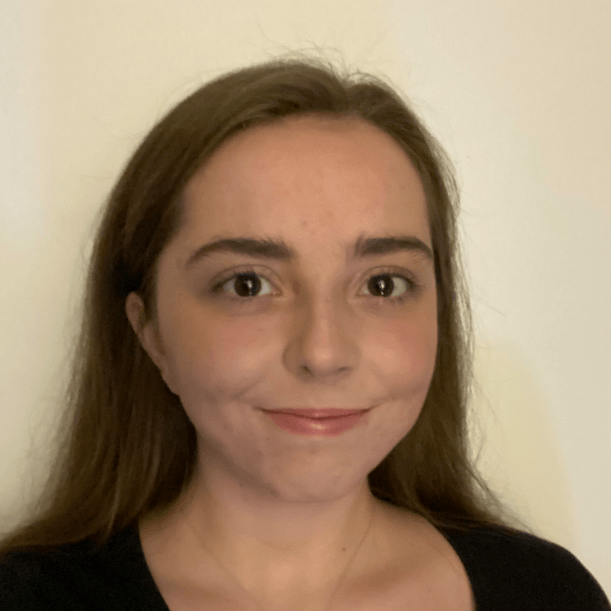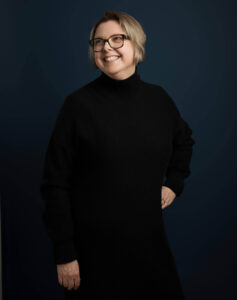My name is Rebecca, and I am a research council funded, 1st year PhD student based in the School of Law at the University of Nottingham. Although I am only in the first year of my PhD, I have actually been at Nottingham for a year already, completing my MA in Social Science Research. Therefore, I have been lucky enough to have settled at the University and have gained invaluable research experience, on top of my thesis, that has been incredibly interesting and rewarding.
My main research is about the use of remote, autonomous and cyber weaponry in warfare, and the adequacy of the Law of Armed Conflict (also known as International Humanitarian Law). Law and war are topics that I have had an immense interest in for many years, both in and out of the academic context. When I discovered how much I enjoyed researching whilst finishing my undergraduate dissertation, the goal of progressing to a PhD seemed like such a natural fit.
I always knew that my field of interest was international humanitarian law (IHL), but, several years ago, I was inspired by a newspaper article, which highlighted the growing problem the Royal Air Force is having with retaining crew members that operate their armed drone squadron, due to the psychological toll the job can take on individuals. This led me to think about the legal implications, as well as the ethical ones, which opened up a whole area of academic debate that I hadn’t come across before. Although it is true that technological developments in warfare are currently crowding the IHL field, few are conducting empirical research and interviewing the main military players involved. This is why a significant element to my thesis will consist of elite interview data with members of the US Air Force and Royal Air Force. As you can imagine, this methodology comes with significant ethical considerations.
This brings me to my first observation of what it is like to be a researcher. Although it is necessary to strike the correct balance, and that means in many circumstances prioritising your PhD (and rightly so!), if time and opportunity allows, I would highly recommend working as a research assistant on different projects. The project does not necessarily have to be in the same field as your research either! In the past year, I have been involved in a project looking at the UK’s legal response to the Covid-19 pandemic, in relation to its collaboration with the WHO and the UK’s international health law obligations. As part of this project, it was necessary to interview key actors in the UK’s response, such as NHS emergency planners and Public Health England (now known as the UK Health Security Agency) staff. This experience helped me better understand the ethics application process for my own thesis, and I feel far more prepared to tackle my own interviews (and tackle them well), than I would have done had I not been exposed to this research method before.
Even though I am at the beginning of my research, I think one of the most significant elements to success during a PhD is a good supervisor/student relationship. Your supervisor(s) are there to guide you during your thesis and provide advice on not only the quality of your writing, but also how to gain ethical approval (if necessary to your thesis), academic career advice, and advice on recommended readings. I consider myself lucky that I have been able to nurture a fantastic rapport with both of my supervisors prior to my PhD and therefore I am able to seek advice easily and without anxiety or awkwardness.
Furthermore, it is important that you are on the same page as your supervisor(s) when it comes to starting the PhD process. It is very overwhelming in the first few weeks of the course because you’re suddenly faced with a three year long project. If you are anything like me and you enjoy the feeling of accomplishment when you tick off a task on your to do list, the prospect of having ‘write 100,000-word thesis’ on the list, and being unable to tick it off for at least the next three years, may send you into a panic. However, I was able to talk to my supervisors at an early stage and we agreed that I would start on a very specific part of my thesis, sending me away to research a specific area of the field and write up what I had found. Although this writing will likely never make the final thesis, it is nice to see words on paper, and it also helps to process what I have been reading that week/month. If this sounds like a strategy that may work for you, I encourage you to speak to your supervisors because it is so important that you work in a way that is best suited to your own needs.
A common piece of advice given to PhD students and early career researchers is to firstly, volunteer to present your research at conferences and network as much as possible and secondly, publish in academic journals. This is incredibly daunting and I have learnt that it is common to have feelings of imposter syndrome, especially when faced with speaking in front of academics whose work you have potentially been reading and maybe even admiring for a long time. Nevertheless, the experience and feedback gained from speaking about your research is invaluable – allowing you to build confidence in your abilities and improve your work through the suggestions of others.
In relation to publishing, it is incredibly fulfilling to see your name in black and white and, especially if you wish to make academia your career, it also looks great on your CV. In addition, I feel like I have developed as a researcher and become more well-rounded in my understanding and appreciation of research and different kinds of research methods because I was lucky enough to take part in the MA in Social Science Research. The MA and other courses like it are there to expose you to alternative techniques and methods outside of your subject area which you may not have been familiar with before. Whilst it may seem like a waste of time getting to know research methods outside of the one(s) that you wish to employ in your own work, knowledge of wider methods can help create a new perspective to a given research project and expand the type and amount of data you can collect. It also helps you understand the research of academics in different fields.
The final substantive point I wish to make is one that is often repeated, but its significance cannot be understated. It is vital that, amongst the hard work and the long days during your PhD, you take measures to protect your mental health. The stress and solitude of writing, the lack of a ‘normal’ job-like structure during your working week, and the likelihood of having few people around you who understand your decision to undertake a PhD is a recipe for burnout and other mental health problems.
I have taken onboard advice from my other research colleagues and have forced myself to stick to a strict working week and weekend rest routine (unless deadlines are looming of course). My fellow PhD students and I who work like this have expressed the joy of having a productive week, coming to the end of it on a Friday evening and feeling well rested and ready to work at full capacity again when Monday morning comes around. However, I understand that I am in a privileged position to work flexibly as my only responsibility is my research. If you have family or childcare responsibilities (I admire your ability to complete a PhD at the same time intensely!) then it may not be right for you, but finding time away from the desk is vital to not only your mental health but also your productivity.
Top tips
1. Create and maintain a really strong relationship with your supervisor(s).
2. Develop a work routine, and a rest routine too!
3. Accept opportunities that come your way, such as attending and/or speaking at conferences – even ones abroad if your financial situation allows!
4. Keep comprehensive notes of any thoughts or areas of research that come up during the course of your reading so you can keep track of your ideas.
5. If you feel overwhelmed at the magnitude of researching and writing such a large piece of work, try to break it down into smaller tasks and write a to-do list at the beginning of each week so you can see what you need to do and how much you have accomplished. This can help with motivation.
6. Keep a track of what you read and their citations. You will receive many recommendations for referencing software like Mendeley or Endnote but if these do not suit you, creating a simple spreadsheet can work just as well. You can also add a column where you can state if you have read it or not so you can create a reading list for yourself at the same time.
7. Do not be afraid if you feel like you need a break from writing. In fact, putting a pause on writing to enable you to take a step back and review what you have done so far can help formulate new ideas or theories in your mind for you to explore or expand on in your writing. If you have writers block on a particular day, don’t force yourself to write.






